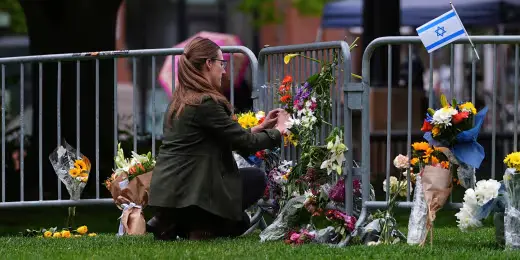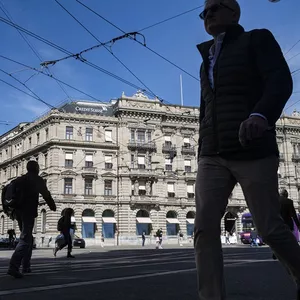Federal Judge Lifts Order Halting Deportation of Family Tied to Boulder Firebomb Suspect
A federal judge has lifted a temporary restraining order that had previously blocked the deportation of the family members of a suspect linked to a firebombing incident in Boulder, Colorado. The decision allows U.S. immigration authorities to resume removal proceedings.
In a pivotal ruling that could have far-reaching implications for immigration enforcement and judicial oversight, a federal judge has ended a temporary restraining order that had previously blocked the deportation of several family members of a suspect in a high-profile firebombing case in Boulder, Colorado. The court decision clears the way for U. S.
Immigration and Customs Enforcement (ICE) to resume deportation actions against the family, following a months-long legal dispute involving humanitarian concerns, procedural fairness, and public safety. ### Background: The Boulder Firebombing CaseThe case stems from a firebombing attack that took place in early 2024 in a residential neighborhood of Boulder. Several Molotov cocktails were thrown into a local home in what authorities initially described as a targeted act of violence.
The fire caused extensive damage to the property and left two individuals with severe burns. After a month-long investigation involving local police and federal agents, a 19-year-old male suspect — a legal U. S.
resident of Middle Eastern descent — was arrested and charged with arson, attempted murder, and the use of an explosive device. While prosecutors have not yet disclosed the full motive behind the attack, preliminary evidence suggests the incident may have stemmed from a personal dispute, though investigators have not ruled out other motives. The suspect remains in pre-trial detention, and his criminal case is ongoing.
### Family Detention and Deportation OrderShortly after the arrest of the suspect, ICE detained his immediate family members — including his parents and two younger siblings — citing immigration violations that predated the firebombing incident. According to ICE, the family had overstayed their visas several years ago and were residing in the United States unlawfully. ICE issued removal orders for the family, which triggered significant backlash from civil rights groups and immigration advocates.
Supporters argued that the family should not be penalized for the alleged crimes of a single member, particularly when several members had pending asylum claims or had expressed credible fear of persecution in their country of origin. Attorneys representing the family filed for a temporary restraining order in federal court, arguing that deporting them would violate due process and expose them to potential harm abroad. In late 2024, Judge Monica R.
Larson of the U. S. District Court for Colorado issued an emergency stay, halting deportation proceedings until a full hearing could be held.
### Judge’s Rationale for Lifting the StayOn Monday, Judge Larson lifted the restraining order after a review of new evidence and legal filings. In her 47-page decision, the judge stated that while the family’s circumstances were “sympathetic,” the plaintiffs had failed to demonstrate that their removal would constitute irreparable harm under the law or that ICE had violated its legal authority. “The court must distinguish between the moral concerns of association with an accused individual and the legal framework that governs immigration enforcement,” Larson wrote.
“This court cannot substitute its judgment for the lawful discretion of immigration officials unless there is clear evidence of constitutional violations — and that threshold has not been met. ”Judge Larson also acknowledged the intense public interest surrounding the case, but reaffirmed that immigration law must be enforced consistently and fairly across all jurisdictions. ### Civil Rights and Legal Community ReactReaction to the ruling was swift and polarized.
“This is a dark day for justice,” said Amina Khalid, a spokesperson for the Immigrant Family Advocacy Project. “This family has lived here for over a decade, contributed to the community, and was dragged into a criminal case based on guilt by association. Deportation in this case is not only cruel — it's discriminatory.
”Khalid added that the group plans to appeal the decision to the U. S. Court of Appeals for the Tenth Circuit and will explore possible humanitarian relief options, including emergency stays from the Department of Homeland Security.
On the other hand, supporters of stricter immigration enforcement praised the ruling as a reaffirmation of legal authority. “Judge Larson followed the law,” said Mark Freeman, policy director for Citizens for Secure Borders. “The presence of illegal immigrants in this country — regardless of their family ties or the crimes of relatives — must be addressed through proper legal channels.
We are a nation of laws. ”### Homeland Security and ICE ResponseFollowing the judge’s order, ICE confirmed that it would proceed with removal efforts for the family in the coming days. In a statement, an ICE spokesperson emphasized that the agency is committed to enforcing U.
S. immigration law while considering humanitarian factors on a case-by-case basis. “We respect the court’s decision and will act accordingly,” the statement read.
“ICE continues to prioritize enforcement efforts on individuals who pose a threat to public safety, while adhering to established immigration protocols. ”The agency did not clarify whether the family would be detained further or released under supervision before removal. ### Immigration Law and 'Collateral Damage'Legal scholars have pointed out that the case highlights an often-overlooked aspect of immigration enforcement known as “collateral arrests.
” In such scenarios, when an individual is targeted by law enforcement, family members or close associates who lack legal status may also be subject to detention and deportation, even if they are not suspected of any wrongdoing. “This case raises serious ethical questions about guilt by association,” said Professor Laura Meza, an expert in immigration law at the University of Denver. “Even if the family members technically violated immigration law, the optics of deporting them in connection with a relative’s alleged crime can erode public trust in the justice system.
”Others argue that the law must be enforced uniformly and that compassion must be balanced with accountability. “Visa overstays are still violations of law,” said Thomas Chen, a former ICE counsel. “The family may deserve sympathy, but that doesn’t exempt them from immigration proceedings.
”### Political Implications and Public DebateThe case has sparked renewed debate over immigration policy, especially in the context of broader criminal justice issues. Colorado lawmakers have weighed in, with Democratic Senator Maria Gonzales criticizing ICE’s actions as “heavy-handed” and calling for reforms that prioritize community impact. “This family was caught in a dragnet,” Gonzales said in a press statement.
“We need to reconsider how we treat individuals caught up in enforcement actions that extend beyond the intended target. ”Republican Congressman Brian Lawton, however, applauded the decision and blamed progressive lawmakers for “coddling unlawful immigrants under the guise of compassion. ”“Immigration law must not bend to emotional pressure,” Lawton said.
“This ruling is a victory for the rule of law. ”### What's Next for the FamilyWith the restraining order lifted, attorneys for the family are now scrambling to file last-minute appeals and humanitarian petitions. They may also pursue relief under the United Nations Convention Against Torture or apply for deferred action, though success is uncertain.
“The legal fight isn’t over,” said lead attorney Rachel Munoz. “We believe this family still has viable legal options, and we will exhaust every one of them. ”Meanwhile, advocates have organized community vigils and fundraising efforts to support the family and raise awareness of their case.
In Boulder, several residents have signed petitions urging local officials to intervene. ### ConclusionAs the legal drama unfolds, the case of the Boulder firebombing suspect’s family is emblematic of the complex intersections between criminal justice, immigration law, and humanitarian concern. The ruling to lift the deportation stay may set a precedent for how courts interpret family association in immigration enforcement.
While the legal rationale has been laid out, the human cost — for the family, the community, and public trust — continues to reverberate. Whether justice is ultimately served may depend not just on courtroom decisions, but on the national conversation about who belongs, who gets protected, and how the law is applied in an age of increasing scrutiny.
21st july 2025



